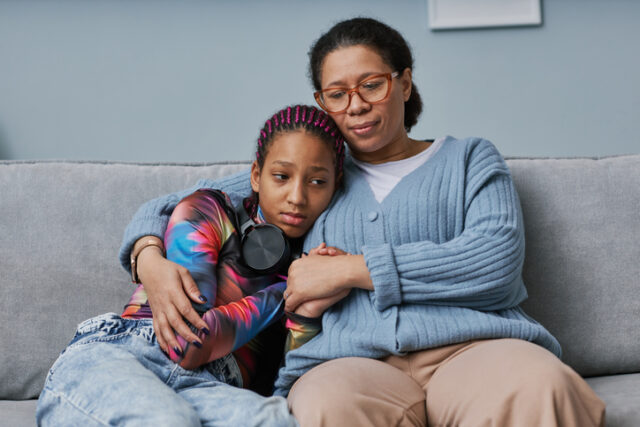As you grow into adulthood, the dynamic with your parents naturally changes, but that change isn’t always smooth.

Many parents struggle to adjust, especially if they’re used to being heavily involved or relied upon. You might notice tension, awkwardness, or pushback—not because they don’t care, but because they’re unsure how to relate to you now. Here are some of the signs they’re still trying to find their footing in your life as an adult.
1. They still try to make decisions for you.

It’s one thing to offer advice; it’s another to expect it to be followed like a rule. If your parents regularly weigh in on your choices with the expectation that you’ll adjust course based on their opinion, it may be less about concern and more about habit. It comes from a place of care, but also control. They may not realise that what feels like guidance to them feels like interference to you, especially when you’ve already made up your mind.
2. They get uncomfortable when you set boundaries.

Simple boundaries—like saying no to a visit, changing the subject, or asking for space—can trigger confusion or even guilt trips. Instead of accepting the boundary, they might take it personally or accuse you of pulling away. This reaction is often a sign they’re still adjusting to your independence. The line between closeness and control can blur easily when they’re used to being needed in a different way.
3. They still treat you like you’re a teenager.

Even when you’re living on your own, working, and handling your responsibilities, some parents still talk to you like you’re 16. They may check up on you as if you can’t manage, or question decisions you’ve already made confidently.
It’s not necessarily meant to insult your competence. It’s just that they just haven’t fully updated their mental image of you. Sometimes, seeing you as an adult challenges how they see themselves too, especially if parenting has always been central to their identity.
4. They offer unsolicited advice on everything.

From your finances to how you do your laundry, some parents can’t help but weigh in. While their intentions may be good, the constant commentary often feels more like criticism than support. This usually reflects their discomfort with stepping back. Giving advice might be their way of staying involved, but if it feels relentless, it may be worth gently pointing out that being asked first goes a long way.
5. They compare your adulthood to theirs at your age.

“When I was your age…” can be an innocent observation, or a subtle form of pressure. If your parent constantly brings up their milestones or struggles at your age, it might signal that they’re projecting their journey onto yours. This often comes from a place of uncertainty. If they’re unsure how to connect with the adult version of you, they might fall back on comparing timelines instead of learning your current pace and priorities.
6. They expect to be involved in decisions that don’t involve them.

Choosing a place to live, ending a relationship, switching jobs—these are big life moments. But if your parents expect to be part of the decision-making process, even when you haven’t invited them in, it can feel intrusive. That over-involvement often comes from a belief that their opinion still carries authority. Recognising this doesn’t mean cutting them out. It just means redefining where their influence begins and ends.
7. They seem hurt when you don’t check in as often.

If a missed call or late text turns into a guilt trip, it might be a sign they’re struggling with the natural change in how often you’re available. What used to be constant updates might now be occasional messages, and that gap can feel personal to them. They may not understand that less contact doesn’t mean less love. Explaining your rhythms, and reassuring them you still care, can help ease the adjustment without compromising your space.
8. They insert themselves into conflicts or stress you’re trying to handle solo.

If you’re venting about a problem, and they immediately want to intervene or fix it, they may not be recognising your ability to handle things on your own. What you needed was space to process, not someone stepping in with solutions or judgement. This reaction is often automatic for parents who’ve spent years protecting or managing things for you. The challenge is helping them see that support in adulthood often looks like listening, not taking over.
9. They treat your success like a reflection of their parenting.

Some parents celebrate your achievements with pride, which can be great. However, when they take credit or frame your wins as proof of their success, it blurs the line between support and self-validation. This can leave you feeling like your adult life is still being measured by their standards. Affirming your own growth without dismissing their role helps draw that distinction gently but clearly.
10. They assume their values still align perfectly with yours.

You may have grown up with shared beliefs, but adulthood often brings changes in perspective. If your parents act surprised or defensive when your views differ, it may be a sign they haven’t fully made room for your growth. Learning to accept your differences is part of their new role. The more they try to pull you back into their worldview, the harder it becomes to build a relationship based on mutual respect instead of default agreement.
11. They cling to old traditions even when they no longer fit.

Holidays, birthdays, or weekly routines might carry strong meaning for your parents. But if they resist any change—like where you spend Christmas or how you celebrate—it might be a sign they’re holding onto the past more tightly than they realise. Honouring tradition is valid, but it should grow with the people involved. Letting go of “how things have always been” doesn’t mean letting go of connection. It’s just making room for a new kind.
12. They struggle to relate without “parenting” you.

Some parents aren’t sure how to interact without teaching, correcting, or checking in. When that’s been their role for decades, the idea of just hanging out or connecting adult-to-adult feels unfamiliar. This isn’t about rejection; it’s about habit. The more you show them who you are now, the easier it becomes for them to see that relationship evolving. It’s a change, not a break. It’s okay if it takes time for them to catch up.




